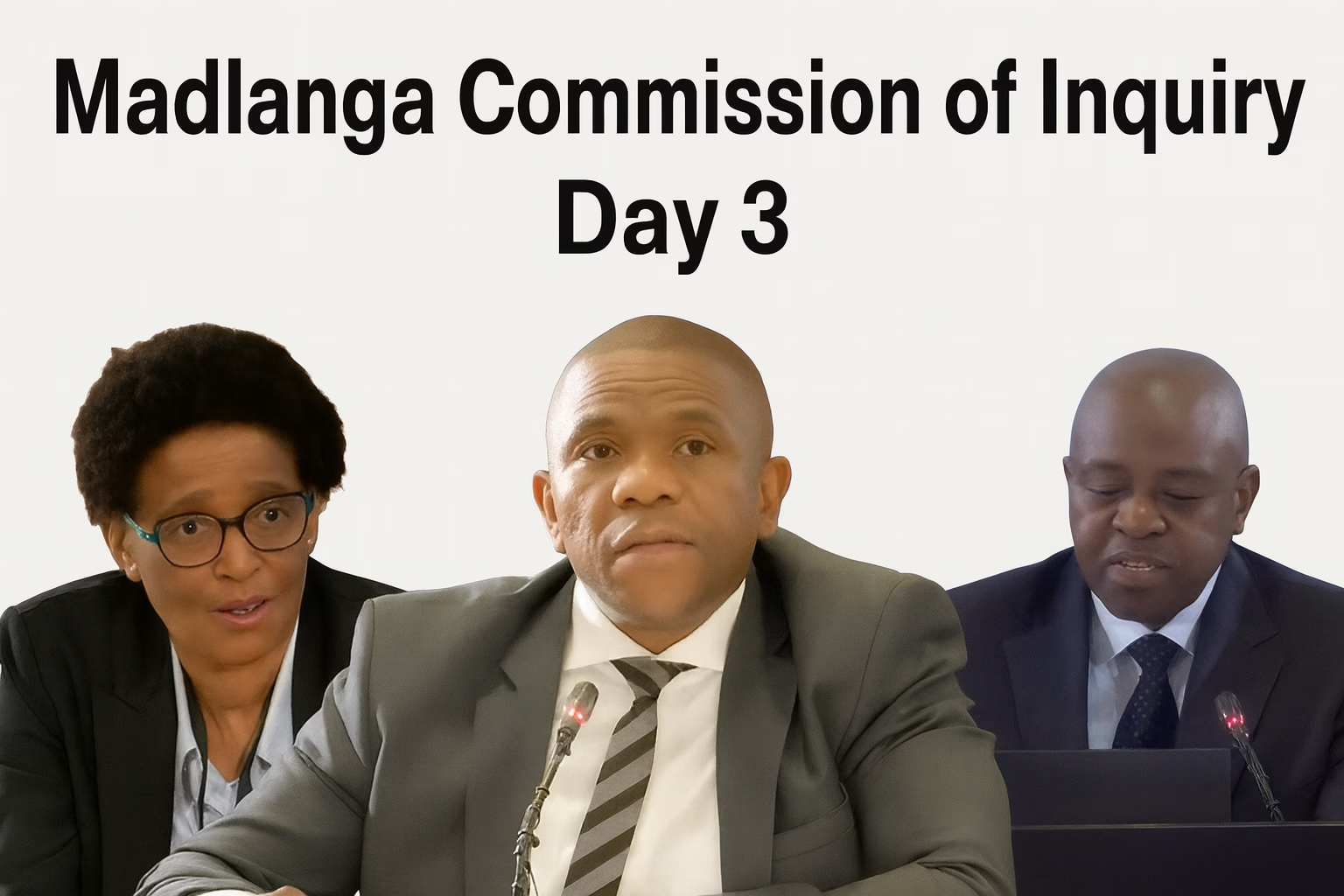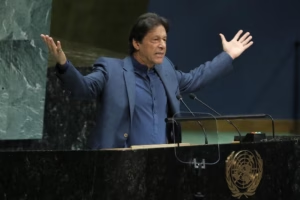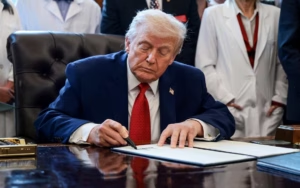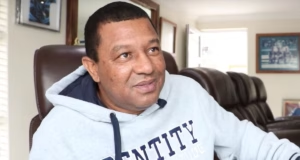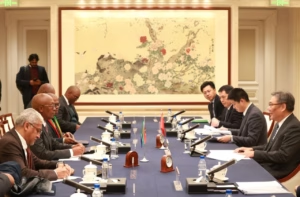The Madlanga Commission has entered a critical phase following testimony from KwaZulu-Natal Police Commissioner Lieutenant General Nhlanhla Mkhwanazi, who produced WhatsApp exchanges that appear to reveal a web of political influence, tender manipulation, and questionable dealings involving senior figures.
A Commissioner’s Alarming Testimony
After three days on the stand, Mkhwanazi ended his testimony on Friday by presenting screenshots of WhatsApp messages that he said were exchanged on 26 January 2025 between businessman Brown Mogotsi and well-known tender operator Vusimuzi “Cat” Matlala.
According to Mkhwanazi, the conversations were not only alarming for what they suggested about irregular procurement processes within the South African Police Service, but also because of how his own name had been inserted into private discussions.
“That drew my attention. What exactly were they planning? Why was my name being mentioned in a private discussion between a businessman and a tender-linked figure?”
Mkhwanazi asked during his testimony.
Evidence of Tender Dealings
One of the most striking exchanges centred on payment arrangements.
“One of the conversations between Brown Mogotsi and Matlala involves Mogotsi reminding Matlala to submit his invoice. Intelligence reports confirmed that Matlala submitted proof of invoice for expedited payment related to the ACPS contract with SAPS,”
Mkhwanazi told the commission.
Mkhwanazi further revealed that Mogotsi later forwarded Matlala a screenshot from a separate conversation, allegedly between himself and Police Minister Senzo Mchunu. That particular message reportedly outlined plans for a meeting with Deputy National Commissioner Shadrack Sibiya to
“finalise”
matters concerning both General Dumisani Khumalo and Mkhwanazi himself.
Political Context and Suspicious Timing
The timing of the messages added further intrigue. On the very same day that Police Minister Mchunu disbanded the Political Killings Task Team, Mogotsi sent Matlala a short note that read:
“Today is the day, just stand back.”
This raised questions about whether sensitive political decisions were being pre-empted in private communications between individuals with direct interests in lucrative state contracts.
Questions of Authenticity
Although the screenshots were sourced from Matlala’s phone, not Mogotsi’s, Mkhwanazi admitted that some uncertainty remained about the authenticity of certain names that appeared.
“I’m not saying that was Minister Mchunu. It could be someone else saved under that name. But the message does begin with, ‘Morning Minister,’”
he said.
This caveat has prompted wider debate about whether senior political figures were indeed involved or whether their identities may have been misused to lend credibility to private conversations.
Broader Implications
The WhatsApp threads were described by Mkhwanazi as
“part of what the team is investigating.”
He suggested that they hinted at covert operations and informal meetings disguised as ordinary exchanges.
The discussions went beyond tenders. Mkhwanazi testified that the exchanges referenced attempts to secure cybersecurity staff and even arrangements for covering expenses linked to guests travelling with the Police Minister to an African National Congress rally in Cape Town.
Evidence such as receipts, hotel reservations, and related documentation has reportedly been gathered by investigators and will be presented as the inquiry proceeds.
Mogotsi Yet to Face Charges
Despite the seriousness of the revelations, Mkhwanazi confirmed that Mogotsi has not yet been charged or even formally investigated.
“We haven’t gone to Brown Mogotsi’s phone. There’s no registered case against him — yet. But what we are seeing raises serious red flags,”
he told the commission.
This has fuelled speculation about whether the inquiry will soon move to subpoena both Mogotsi and Minister Mchunu in order to test the credibility of the evidence and determine how deep the alleged network of influence runs.
Mounting Pressure on the Inquiry
With WhatsApp at the centre of the unfolding narrative, the commission is under pressure to separate fact from manipulation. The involvement of figures with both political and operational authority has created an atmosphere of uncertainty within the South African Police Service and beyond.
The use of senior officials’ names in casual exchanges underscores the challenge faced by investigators, who must establish whether those references were authentic or a deliberate attempt to inflate the influence of certain businessmen and tender operators.
The unfolding evidence, however, suggests that the battle against corruption within SAPS may be far more complex and politically entangled than previously understood.

